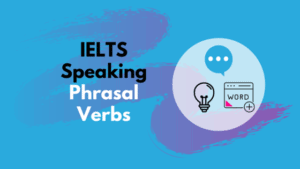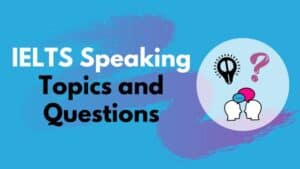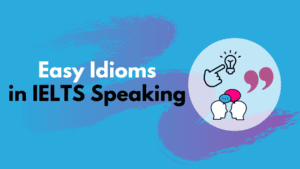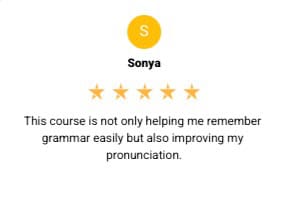The Secret To Having Amazing Conversations In English
👇 Take this lesson with you! 👇
Are you an English student who often finds it difficult to keep conversations going in English?
If so, relax because you are not alone.
Many students master English in a classroom setting but struggle when it comes to real-life conversations, which don’t follow a script and can suddenly switch topics as abruptly as an Italian taxi driver changes lanes. But, worry not. I am about to reveal the secret to having amazing conversations in English.
Focus on three crucial aspects:
- Starting a conversation
- Developing it
- Changing the topic
This will help you immensely. I will also provide some handy tips on how to end a conversation politely. By the end of this article, you’ll feel more confident in having natural conversations in English. Ready? Let’s dive in!
Table of Contents
Starting a conversation in English
Imagine this: You’re about to speak to a friend, colleague, or even someone you’ve just met. You might begin with a
‘Hi, how’s things?’ or ‘What’s new?’
Usually, you’ll receive a brief response like
‘Nothing new’, or ‘Same old, same old’.
While these are useful greetings, they don’t stimulate conversations. To make your dialogues more engaging, try asking specific questions like the following,
What have you been up to recently?
What did you do yesterday?
What have you been working on these days?
What’s been keeping you busy lately?
Remember, better questions give better answers.

Developing a conversation in English
Most English learners often use the five “Wh-” questions (Who, What, When, Where, Why) to carry forward a conversation.
This may result in a conversation like the following:
Tom: I went shopping yesterday
You: Where did you go?
Tom: My local supermarket
You: What did you buy?
Although these questions keep the conversation going, using them excessively can turn a friendly chat into a police interrogation!
A better approach is to pick up on the last theme mentioned and develop it into a new theme. For instance, in response to “I went shopping yesterday,” you can say,
“Really? I find shopping such a chore,”
and lead the conversation to talk about shopping experiences, and other new themes like, the price of goods or even new recipes.
Overall, to develop a conversation naturally, I would say a mix of asking follow-up questions with ‘Wh-“ questions as well as developing new themes is the best approach.

Changing the topic in a conversation
Have you ever found yourself stuck in a conversation and wanting to change the topic without being rude?
Phrases like “Anyway…” or “By the way...” are the best way to do it. For instance, you could say,
“Anyway, I went to a party last night,”
shifting the topic from shopping to your recent social event.
Also, phrases like
“By the way, I was going to ask you…”
can smoothly transition the conversation to a different subject. Notice, in English we often use the past tense here just to be more polite.
Here’s an example that might change the direction of the topic above on shopping,
By the way, do you know any good vegetarian recipes? My vegetarian friend is coming for dinner and I have no idea what to cook!
Ending a conversation politely
Knowing how to conclude a conversation politely is equally important. If you need to leave, you can use phrases like
“Listen, I’ve got to go,” or “Well, I must be off.”
If you want to show consideration for the other person’s time, you could say,
“I don’t want to keep you,” or “I’ll let you get on with your work.”
Finally, part on a positive note with
“It was great chatting.”
Mastering the art of conversation in English doesn’t happen overnight. It requires practice, the right questions, and most importantly, active listening. With these strategies, you’re well on your way to having amazing, natural conversations in English.
If you want to start practicing you conversations in English, why not join my online course, IELTS Speaking Success – Get a Band 7+GOLD?
There are daily online Breakout Rooms where you can practice speaking with other students on the course on a range of different topics.
Improve your Speaking Skills with this Free Course
Crack IELTS Speaking Part 1
Learn to Speak with Confidence in Part 1 of Your IELTS Test!
⭐️⭐️⭐️⭐️⭐️
‘It’s such a great course. I’ve learned so many usages for speaking part 1.’
Zu Htet





